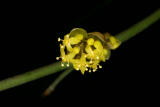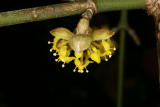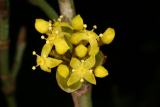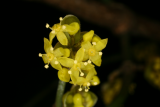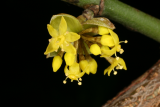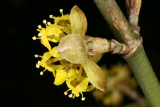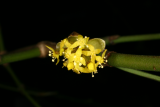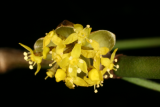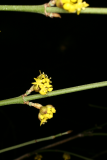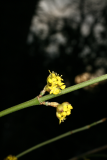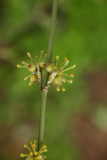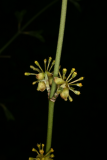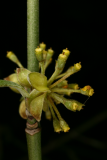Additional notes (click to expand)
Medicinal
Cornus officinalis has a long history of medicinal use in Chinese medicine, where it is known as 'Shan Zhu Yu' and is used to reduce secretions including heavy menstrual bleeding, sweating, excessive urine, spermatorrhoea and premature ejaculation. The fruit of the plant is antibacterial, antifungal, hypotensive, antitumor, astringent, diuretic, hepatic and tonic. It is harvested when fully ripe, dried, decocted (without the seed) for the treatment of arthritis, fever, senile lumbago, diabetes, cystitis and tinnitus. It has also been shown to have an antibacterial action, inhibiting the growth of Bacillus dysenteriae and Staphylococcus. The stem bark is astringent, antimalarial and tonic.
Plants for a Future (2019) (http://www.pfaf.org/)
Nomenclature
Cornus- Dogwood or cornel, bunchberry.
Stearn, W.T. (1996). Dictionary of Plant Names for Gardeners. Cassell. p.104
officinalis- sold in shops, applied to plants with real or supposed medicinal properties.
Stearn, W.T. (1996). Dictionary of Plant Names for Gardeners. Cassell. p.222
Geographical distribution
- Asia-Temperate, China
Cornus officinalis Siebold & Zucc.
Family: CORNACEAEGenus: Cornus
Species: officinalis Siebold & Zucc.
Common names: Asiatic dogwood; Japanese cornel dogwood
Distribution summary: China
Habit: Shrub
Hardiness: H5 - Hardy; cold winter
Habitat: Woodlands
Garden status: Currently grown
Garden location: Plants of the World (B)
Flowering months: February, March
Reason for growing: Medicinal
